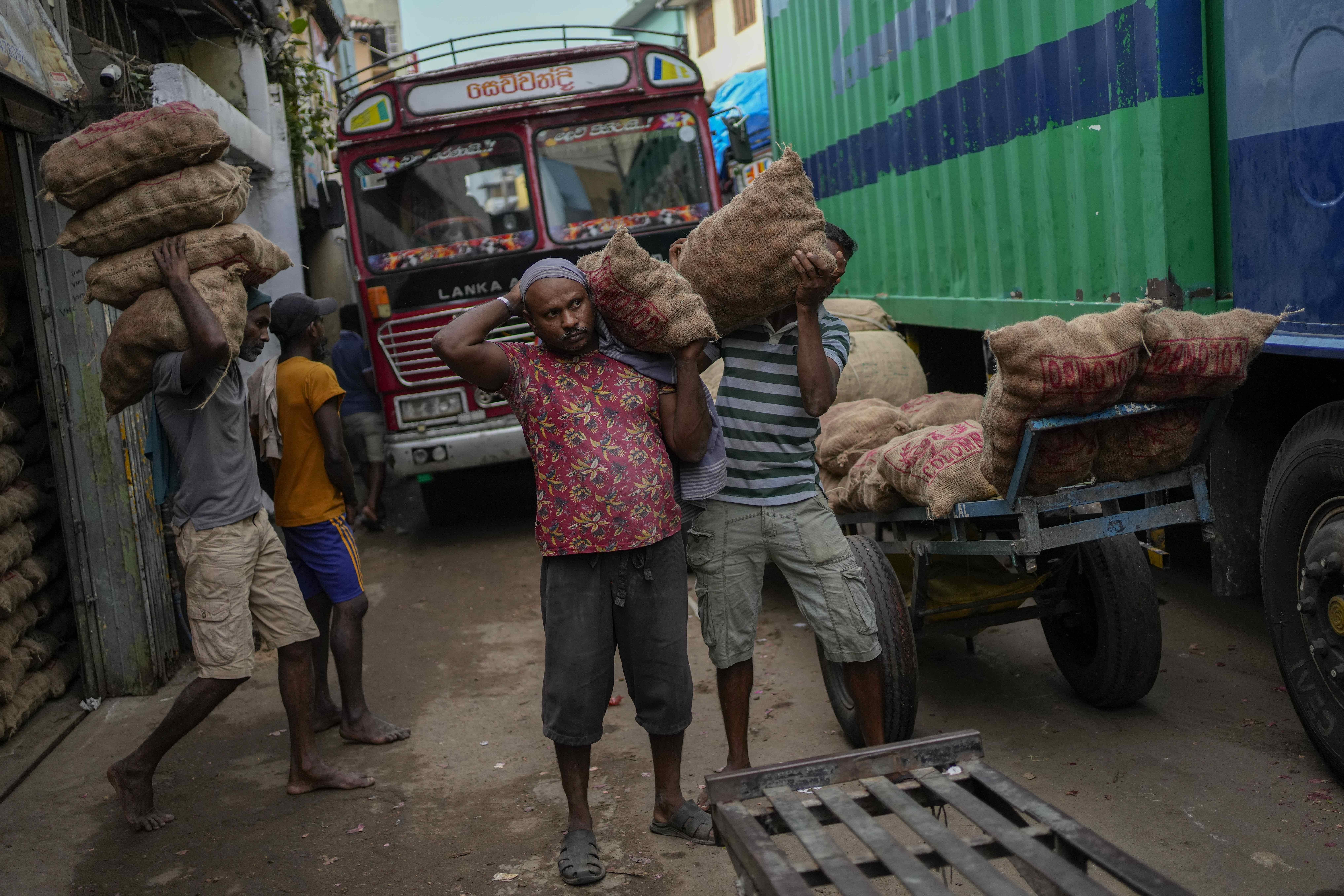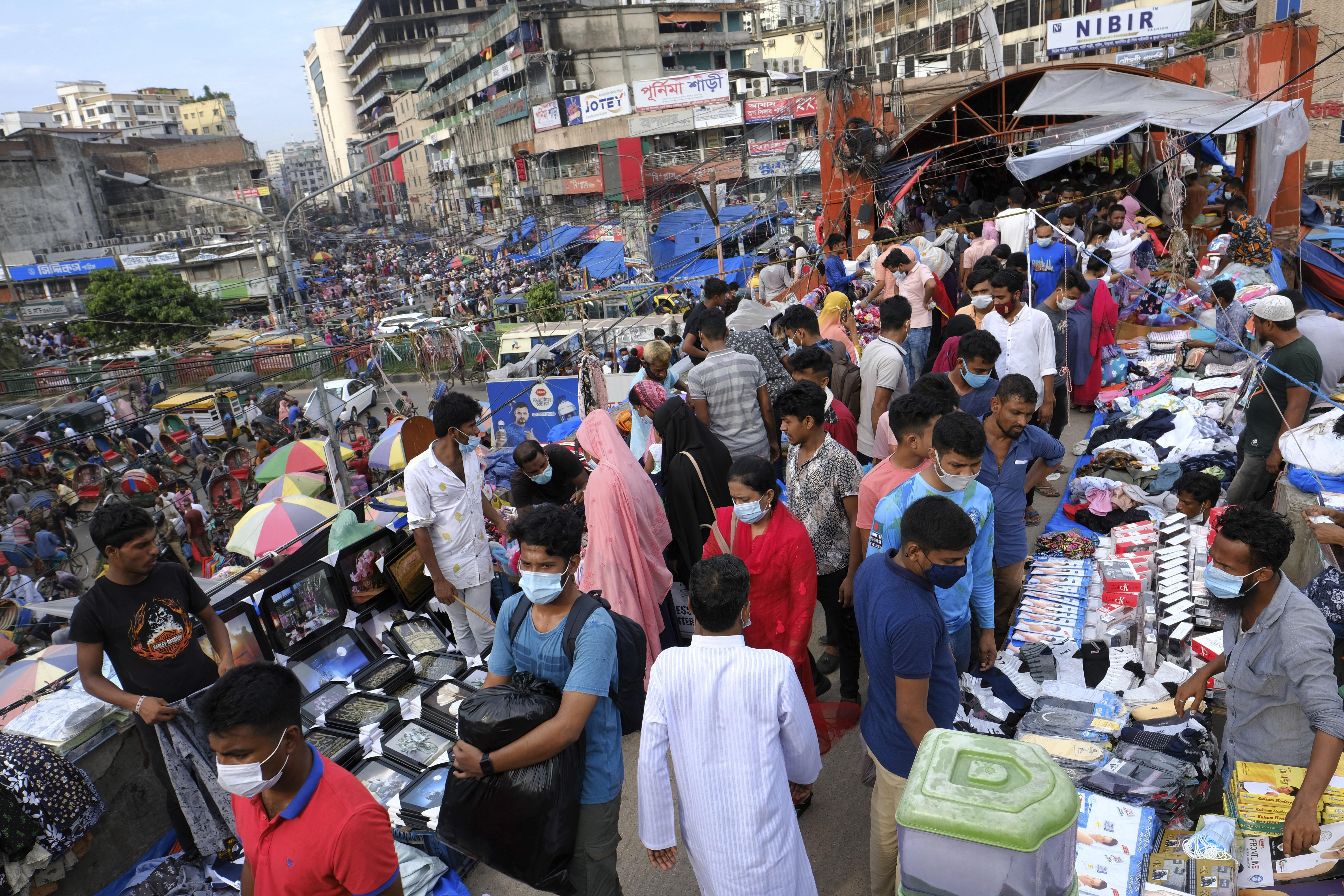 Laborers load sacks of imported potatoes to hand carts at a marketplace in Colombo, Sri Lanka, March 21, 2023. (PHOTO / AP)
Laborers load sacks of imported potatoes to hand carts at a marketplace in Colombo, Sri Lanka, March 21, 2023. (PHOTO / AP)
COLOMBO - The second review of Sri Lanka's $2.9 billion bailout with the IMF could be completed in the first half of 2024, provided it manages to meet debt restructuring and revenue targets set under the program, an official said on Wednesday.
The International Monetary Fund (IMF) said its executive board cleared the first review of Sri Lanka's $2.9 billion bailout on Tuesday, providing about $337 million in funds to help tackle the fallout from the country's worst financial crisis in decades.
The South Asian island nation is recovering from its worst financial crisis since its independence in 1948 that sent the economy into freefall last year with soaring inflation, currency depreciation and low foreign reserves.
The total amount sent so far to Sri Lanka now stands at about $670 million, according to the IMF.
Sri Lanka's economy, which began to stabilize after the bailout was secured in March, will contract by 3.6 percent this year
An IMF delegation will travel to Sri Lanka in March and the second review could be finalized about two months afterwards, Peter Breuer, senior mission chief for Sri Lanka, told an online press briefing in Washington.
ALSO READ: IMF: Sri Lanka debt deal could help clear first bailout review
Sri Lanka will need to reach agreements with its official creditors, as well as a resolution with external private creditors to restructure its foreign debt before finalizing the review.
"We are projecting that next year there will be positive growth. So, I think there are signs that all these reforms are paying off but clearly the economy is not yet out of the woods, a lot more reforms need to happen (and) sustaining this reform momentum is really key for the economy to safely emerge from the crisis," he said.
Sri Lanka's economy, which began to stabilize after the bailout was secured in March, will contract by 3.6 percent this year. The country is likely to grow by 1.8 percent in 2024 as economic expansion gains pace, Breuer added.
ALSO READ: Official: Nationwide power outage in Sri Lanka due to a system failure
Sri Lanka needs to raise its tax revenue, reform loss-making state enterprises and build stronger reserves to stay on the IMF program path.
Sri Lanka's sovereign dollar bonds were all trading higher on the day after the island nation cleared the first review under its IMF bailout program.
The bonds were trading between 49.1 to 50.4 cents in the dollar, Tradeweb data showed. Shorter-dated notes gained more than the longer-dated ones.
Bangladesh's $4.7 billion bailout
IMF’s executive board also cleared the first review of Bangladesh's $4.7 billion bailout on Tuesday, providing $689.8 million in funding to Dhaka as it battles high inflation ahead of national elections in January.
 People shop at a market ahead of Eid-al Adha in Dhaka, Bangladesh, July 16, 2021. (PHOTO / AP)
People shop at a market ahead of Eid-al Adha in Dhaka, Bangladesh, July 16, 2021. (PHOTO / AP)
The IMF provided Bangladesh with immediate access to about $468.3 million and also made available $221.5 million in support of the country's climate change agenda.
READ MORE: Bangladesh discovers new oil, gas reserves worth $7b
Sharply rising living costs have sparked violent protests in recent months in Bangladesh as Prime Minister Sheikh Hasina's government struggles to pay for costly energy imports due to shrinking dollar reserves and a weakening Taka currency.
The IMF said Bangladesh's monetary policy should be tightened to restore near-term macroeconomic stability, supported by neutral fiscal policy and greater exchange rate flexibility.
"Bangladesh's economy is navigating multi-faceted economic challenges. Despite a difficult external environment, program performance has been broadly on track..." Antoinette Sayeh, the deputy managing director of IMF, said.
ALSO READ: Child marriage rises 39% in Bangladesh amid climate change
"Near-term policies should continue to focus on containing inflation," Sayeh added.
The IMF projected real GDP growth at 6 percent in 2024 for Bangladesh and expected inflation to moderate to 7.25 percent year over year by the end of 2024.
Bangladesh received an immediate disbursement of about $476 million when the IMF approved the loans in January.


